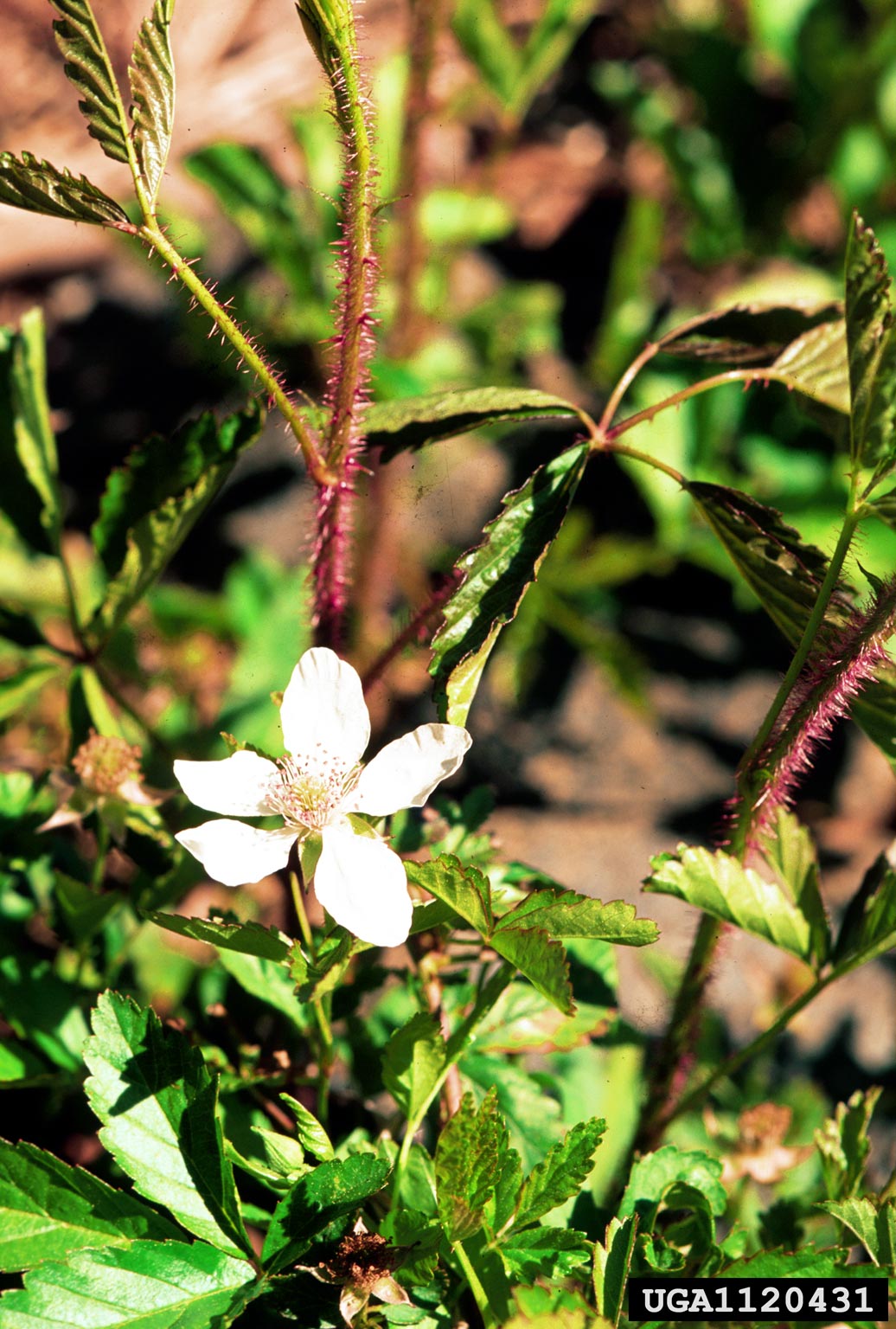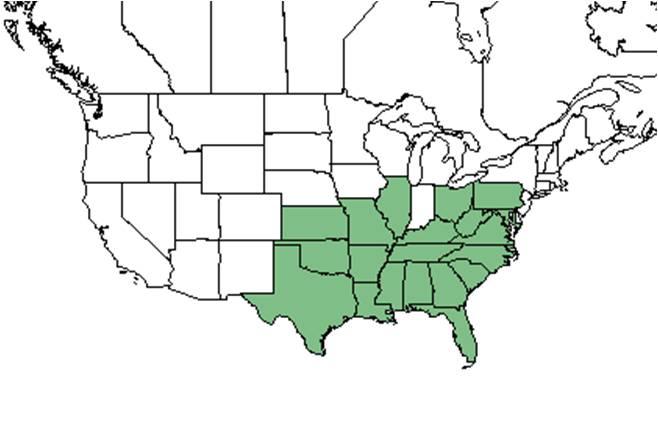Difference between revisions of "Rubus trivialis"
(→Seed dispersal) |
|||
| Line 29: | Line 29: | ||
<!--===Habitat===--> <!--Natural communities, human disturbed habitats, topography, hydrology, soils, light, fire regime requirements for removal of competition, etc.--> | <!--===Habitat===--> <!--Natural communities, human disturbed habitats, topography, hydrology, soils, light, fire regime requirements for removal of competition, etc.--> | ||
===Phenology=== <!--Timing off flowering, fruiting, seed dispersal, and environmental triggers. Cite PanFlora website if appropriate: http://www.gilnelson.com/PanFlora/ --> | ===Phenology=== <!--Timing off flowering, fruiting, seed dispersal, and environmental triggers. Cite PanFlora website if appropriate: http://www.gilnelson.com/PanFlora/ --> | ||
| − | + | ''R. trivialis'' has been observed to flower from February to May with peak inflorescence in March.<ref>Nelson, G. [http://www.gilnelson.com/ PanFlora]: Plant data for the eastern United States with emphasis on the Southeastern Coastal Plains, Florida, and the Florida Panhandle. www.gilnelson.com/PanFlora/ Accessed: 13 DEC 2016</ref> | |
===Seed dispersal=== | ===Seed dispersal=== | ||
Revision as of 18:01, 6 November 2018
| Rubus trivialis | |
|---|---|

| |
| Photo by James H. Miller & Ted Bodner, Southern Weed Science Society, Bugwood.org | |
| Scientific classification | |
| Kingdom: | Plantae |
| Division: | Magnoliophyta - Flowering plants |
| Class: | Magnoliopsida – Dicotyledons |
| Order: | Rosales |
| Family: | Rosaceae |
| Genus: | Rubus |
| Species: | R. trivialis |
| Binomial name | |
| Rubus trivialis Michx. | |

| |
| Natural range of Rubus trivialis from USDA NRCS Plants Database. | |
Common name: Southern dewberry
Contents
Taxonomic notes
Synonym: Rubus lucidus Rydberg
Description
A description of Rubus trivialis is provided in The Flora of North America.
Distribution
Ecology
Phenology
R. trivialis has been observed to flower from February to May with peak inflorescence in March.[1]
Seed dispersal
This species is thought to be dispersed by consumption by vertebrates. [2]
Pollination
The following Hymenoptera families and species were observed visiting flowers of Rubus trivialis at Archbold Biological Station: [3]
Halictidae: Lasioglossum placidensis, L. puteulanum
Conservation and management
Cultivation and restoration
Photo Gallery
References and notes
- ↑ Nelson, G. PanFlora: Plant data for the eastern United States with emphasis on the Southeastern Coastal Plains, Florida, and the Florida Panhandle. www.gilnelson.com/PanFlora/ Accessed: 13 DEC 2016
- ↑ Kirkman, L. Katherine. Unpublished database of seed dispersal mode of plants found in Coastal Plain longleaf pine-grasslands of the Jones Ecological Research Center, Georgia.
- ↑ Deyrup, M.A. and N.D. 2015. Database of observations of Hymenoptera visitations to flowers of plants on Archbold Biological Station, Florida, USA.